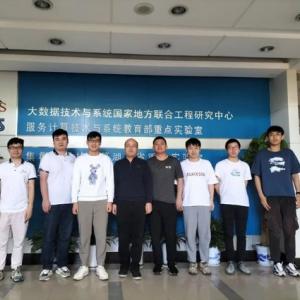A computer developed by Chinese students has defeated Japan's most powerful supercomputer in a global contest. The Chinese computer solved a major complex data problem related to artificial intelligence.
Supercomputer Fugaku in Japan has nearly 4 million CPU cores, making it the second-largest computer ever built. DepGraph Supernode, which was started as a "training project" by graduate students at Huazhong University of Science and Technology in Wuhan, has 128 cores, according to SCMP.

DepGraph Supernode Started As A Training Project
The DepGraph has emerged nearly two times faster than Fugaku in solving data problems similar to the single-source shortest path (SSSP) in the annual Graph500 ranking released by the International Supercomputing Conference early this month.
Students Worked Closely With High-Tech Companies in China
The small computer is designed by Shen Qiange and other first-year graduate students.
"Don't underestimate the ability of students. This is the first time a single computer defeated a cluster of computers in graph calculation," said Zhang Yu, associate professor of computer science and adviser to the project team.
It's being claimed that the students worked closely with high-tech companies in China as their inspiration came from the industry.
Students Reported Their Progress to Huawei Technologies
"The young researchers had worked closely with China's hi-tech companies. Their biggest inspirations came from the industry. The problem definitely originated from the industry. The research meets the most urgent needs of our country," said Professor Jin Hai, a mentor to the students, according to China Science Daily.
The students were reporting their progress to Huawei Technologies every two weeks.
Zhao Jin, a PhD candidate and team leader, said that master's and doctoral students can get access to the topics of the national key research and development plan. This opens our eyes instantly and integrates us more closely with the industry."
According to Graph500, Fugaku recorded top performance in breadth-first search (BFS), another major graph problem with an algorithm that was simpler but required more raw calculation resources to solve.









